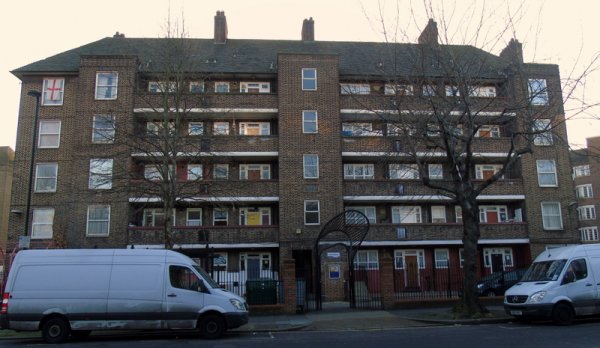May 17th 2021, 14:16
Blog 17th May 2021
In this blog I consider the easing of the lockdown and the issues that have been raised for the public services by the pandemic; the creation of a new Ministry for Climate Change by the Welsh Government; and the implications for landlords and leaseholders of last week’s decision by the court of appeal about who should pay to provide technical advice to leaseholders about service charges.
Now that many of us have been vaccinated and the ‘lockdown’ restrictions are being lifted I am sure most of us will want to look forward to the summer, but it may also be worthwhile reflecting on what the pandemic has shown us. In this blog I would like to share some thoughts about some of the issues that I think have been raised.
It has shown that we live in an interconnected world. We now know that if a virus transfers from animals to humans in a Chinese market it can spread across the globe, mutating into more deadly forms in places as diverse as Brazil, Kent, and South Africa, and kill millions of people including many in all parts of Britain.
This demonstrates that we need an international approach to public health and that we need to strengthen international bodies including the World Health Organisation. We must not fall into the trap of trying to prevent disease by ‘taking control of our borders’ – in the fourteenth century there was very little global trade and contact but the bubonic plague still managed to travel from China to Europe and to kill a third of the population.
This approach needs to go further than co-operation to control contagion. We need an international approach to improving environmental health, public health, and infrastructure across the world. The United Nations should play a key role, but governments in developed countries also need to step up to the plate. The British government should reverse its short-sighted decisions to abolish the Department for International Development and to cut the overseas aid budget.
The pandemic has underlined the importance of ensuring that everyone is housed adequately. It is no coincidence that levels of infections and deaths have been higher in areas where there is sub-standard and overcrowded housing. Recent investigations by the ITV news have shown that this is a problem in the social housing sector as well as in the private rented sector. Government should ensure that enough homes are built to house everybody, while government, social landlords and private landlords should ensure that all rented homes meet at least the decent homes standard.
The pandemic has also shown the need to work locally. In Cumbria where I live – as in many areas - the response of the local authorities was effective, including the police response led by Assistant Chief Constable Andy Slattery, the county council response led by Public Health Director Colin Cox and Eden District Council’s track and trace system that worked far better than the national scheme. Many things are better done locally than nationally.
Similarly, it is generally considered that the response in Northern Ireland, Scotland, and Wales, where there are devolved administrations, was more effective than in England where the response was too centralised.

The Cumberland Infirmary in Carlisle.
Britain’s public services have been stretched by the pandemic, especially in public health, the national health service, and social care. These services managed to cope due to the professionalism and hard work of the people who work in them; but the pandemic has shown that British public services are not well prepared for an emergency. Public health has been a ‘Cinderella service’ for some years with inadequate funding and appreciation of its role. The National Health Service has barely enough capacity to cope with a typical winter ‘flu epidemic let alone a pandemic. Social care is expected to care for a growing elderly population while delivering massive savings. We need all these services to be controlled locally, funded adequately, and given enough capacity to deal with any future crisis.
Climate Change is perhaps the only issue of more importance than the pandemic. Following the elections to the Welsh Senedd, the Welsh Government has created a new Ministry for Climate Change that will be responsible for the environment, energy, housing, planning and transport. Mark Drakeford, the First Minister of Wales said that:
“The environment will be at the heart of our decision-making. The climate change emergency has not gone away while we have been dealing with the pandemic… In my new government, the environment does not just have a seat at the cabinet table, it will be a consideration in all we do.”
Perhaps this is the way to go!
Last week the Aster Group Housing Association lost their appeal on a case regarding the funding of technical advice to leaseholders that could give leaseholders more power to dispute service charges for major works. The Court of Appeal upheld an Upper Tribunal decision that Aster Group must pay for an expert to advise leaseholders on whether work the landlord had proposed to carry out on their building was necessary. It is believed that the case will probably have a wider impact on social landlords and could be of significance in some building safety cases where there is a dispute about the works required.
The case concerned Kingsway Gardens in Andover. In 2016, Aster informed residents through the section twenty process that it intended to carry out major works including repairs to concrete, windows and doors. However, Aster subsequently decided to include repairs to balconies that were estimated to cost £300,000. They therefore sought an exemption, or dispensation, from the consultation process if they agreed to pay the reasonable legal costs of leaseholders looking to challenge the application for dispensation.
The Tribunal granted an exemption on condition that Aster paid for:
“An expert nominated by the lessees to consider and advise them on the necessity of replacing all the balcony asphalt at the main blocks.”
A spokesperson for Aster said that:
“We accept the outcome of the Upper Tier tribunal, confirmed by the Court of Appeal and will not be progressing the application further. The outcome grants us dispensation from the Section 20 consultation requirements on the condition that we cover the cost of an expert report prepared on behalf of leaseholders. The expert report will relate to one aspect of the work carried out under a larger major works scheme. We will be contacting the legal representative acting on behalf of leaseholders shortly so that they can progress with obtaining the expert report. This outcome does not change the service charge costs for leaseholders and the court did not make any award of legal costs to either side.”

Flats on the Briant estate in Lambeth where there are several leaseholders.
There have previously been cases where the Tribunal has quashed service charges on the grounds that landlords have not followed section twenty requirements correctly or that they have carried out work that was not necessary. For example, Islington Council had a policy of replacing roofs on a planned basis once they had reached the end of their estimated life. However, the Tribunal quashed the service charges in one case because the old roofs were still serviceable and therefore did not really need to be replaced.
To view or download briefing papers on service charges issues, please click here.
I also hold webinars that provide a useful introduction to service charges. For further information or to make a booking, please click here.
We have a wider programme of webinars on subjects of interest to those who care about public services including local government and housing. For further information, please click here.